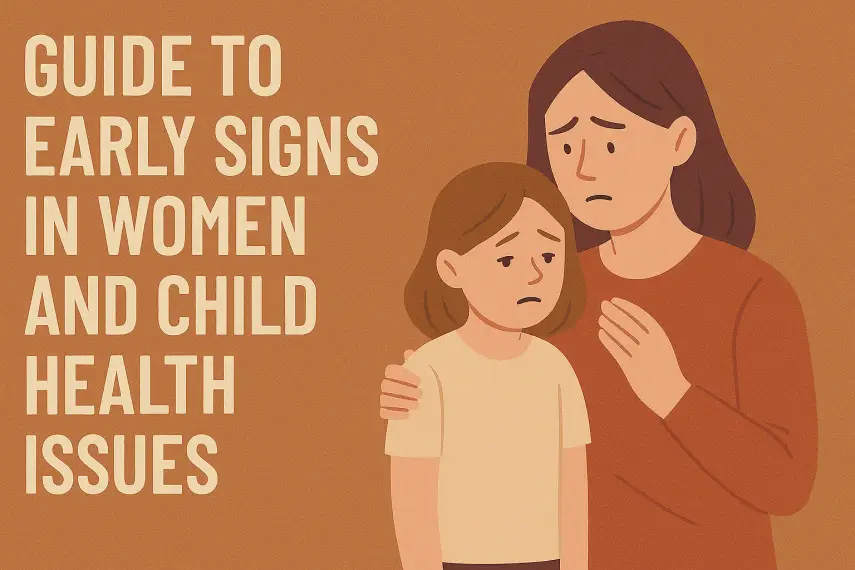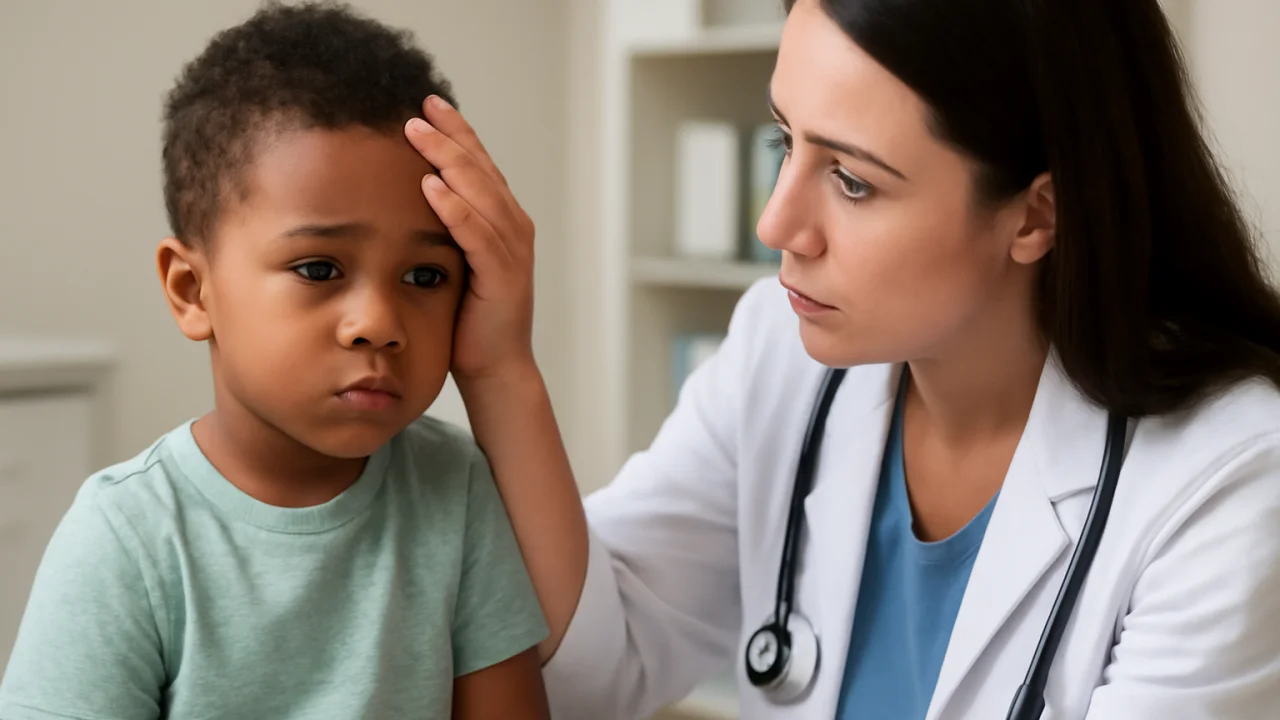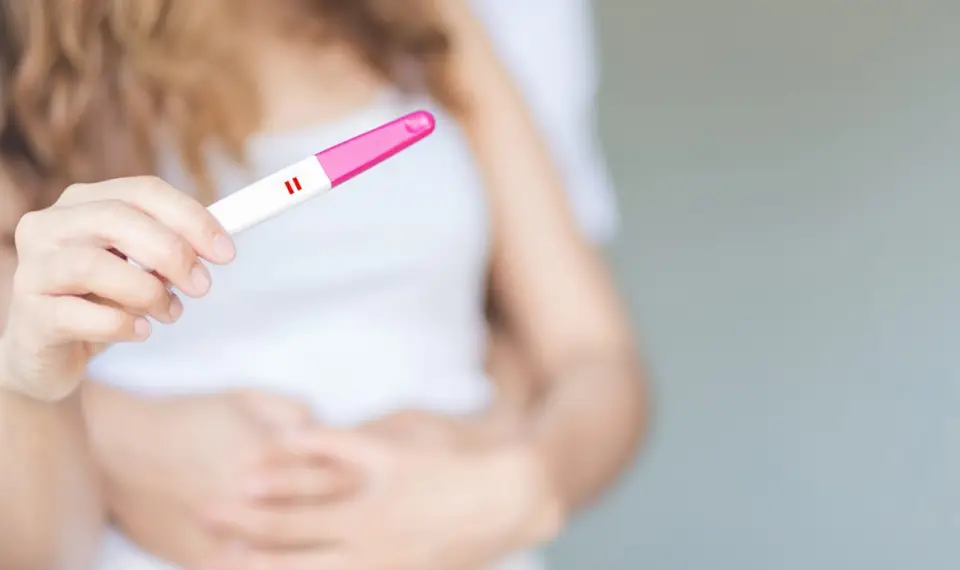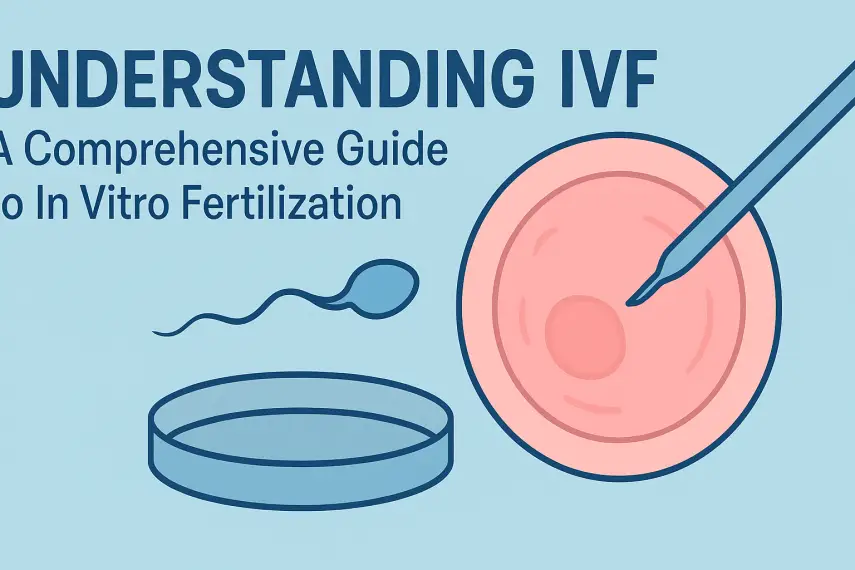
Guide to Early Signs in Women and Child Health Issues
📑 Contents
Recognizing early signs in women and child health issues is essential for prevention, timely intervention, and overall well-being. Many health conditions present subtle symptoms before progressing, making awareness a key factor in effective care. This comprehensive guide will help you identify these signs, understand their implications, and take the right steps for women and children's health.
Understanding Early Health Signs in Women

Women's bodies undergo various changes throughout life, from adolescence to menopause. Early symptoms can indicate potential health concerns, some unique to women, while others are more general. Identifying these signs early allows for prompt diagnosis and improved outcomes.
Common Early Signs in Women’s Health
- Irregular menstrual cycles
- Unexplained fatigue
- Persistent pelvic or abdominal pain
- Unusual vaginal discharge
- Breast lumps or changes
- Unintentional weight changes
- Frequent headaches
- Emotional changes (mood swings, depression)
| Symptom | Possible Health Issue | Recommended Action |
|---|---|---|
| Irregular periods | PCOS, thyroid disorders, stress | Consult a gynecologist |
| Pelvic pain | Endometriosis, infections | Medical evaluation |
| Breast lump | Fibroadenoma, cyst, breast cancer | Clinical breast exam |
| Fatigue | Anemia, thyroid issues | Blood tests |
When to Seek Medical Attention
Some early signs in women require immediate medical attention, such as:
- Severe abdominal pain
- Sudden vision changes
- Persistent bleeding between periods
- Shortness of breath
If these symptoms occur, consult a healthcare provider promptly.
Recognizing Early Signs in Child Health

Children may not always communicate their discomfort clearly. Parents and caregivers should monitor for subtle changes in behavior, appearance, and physical health to detect underlying issues early.
Common Early Signs in Child Health
- Poor weight gain or growth
- Persistent cough or breathing issues
- High fever lasting more than three days
- Unexplained rashes
- Delayed milestones (walking, talking)
- Lethargy or excessive sleepiness
- Loss of appetite
- Unusual irritability
| Symptom | Possible Cause | Action |
|---|---|---|
| Poor growth | Malnutrition, hormonal issues | Pediatric assessment |
| Chronic cough | Asthma, infections | Doctor consultation |
| Fever >3 days | Serious infection | Immediate medical care |
| Developmental delays | Neurological, genetic | Specialist referral |
Red Flags in Child Health
- Difficulty breathing or wheezing
- Seizures
- Sudden loss of consciousness
- Persistent vomiting or diarrhea
These signs warrant urgent evaluation by a healthcare professional.
Preventive Strategies and Health Maintenance

Early detection is most effective when combined with preventive health strategies. Both women and children benefit from regular check-ups, vaccinations, and healthy habits.
Recommended Health Screenings for Women
- Annual pelvic and breast exams
- Pap smears (as recommended)
- Mammograms (age-appropriate)
- Blood pressure checks
- Diabetes and cholesterol screenings
Recommended Health Screenings for Children
- Regular growth and development assessments
- Vision and hearing tests
- Vaccination schedule adherence
- Dental check-ups
| Age Group | Recommended Check-ups | Frequency |
|---|---|---|
| Women (18–40) | Gynecological, blood tests, BP | Annually |
| Women (40+) | Mammogram, bone density | Every 1–2 years |
| Children (0–5) | Growth, vaccination | As per schedule |
| Children (6–18) | Vision, hearing, dental | Annually |
FAQ: Early Signs in Women and Child Health Issues
1. What are the most common early signs of health problems in women?
Common early signs include irregular periods, fatigue, unexplained pain, breast changes, and mood swings. Regular check-ups help detect underlying causes.
2. How can parents recognize early health issues in children?
Look for changes in appetite, growth, behavior, sleep patterns, and developmental milestones. Persistent symptoms warrant medical attention.
3. When should a woman consult a doctor for menstrual irregularities?
If periods are consistently unpredictable, very heavy, or accompanied by pain, it is advisable to consult a gynecologist for evaluation.
4. What are red flag symptoms in child health?
Red flag symptoms include difficulty breathing, persistent high fever, seizures, and sudden lethargy. These require immediate medical care.
5. Are all breast lumps in women a sign of cancer?
No, many breast lumps are benign, such as cysts or fibroadenomas. However, any new lump should be evaluated by a healthcare provider.
6. How often should children have health check-ups?
Infants and toddlers require frequent check-ups, while older children and adolescents should have annual visits or as recommended by their doctor.
7. What preventive steps can women take for better health?
Maintain a balanced diet, exercise regularly, avoid smoking, manage stress, and attend regular health screenings.
8. How important are vaccinations for children?
Vaccinations are crucial for preventing serious diseases. Following the recommended schedule ensures optimal protection for children.
Conclusion
Awareness of early signs in women and child health issues can make a significant difference in outcomes. Regular screenings, a healthy lifestyle, and prompt medical attention for unusual symptoms are key to long-term health. Stay informed and proactive—visit isayinfo.com for more health insights and support.











